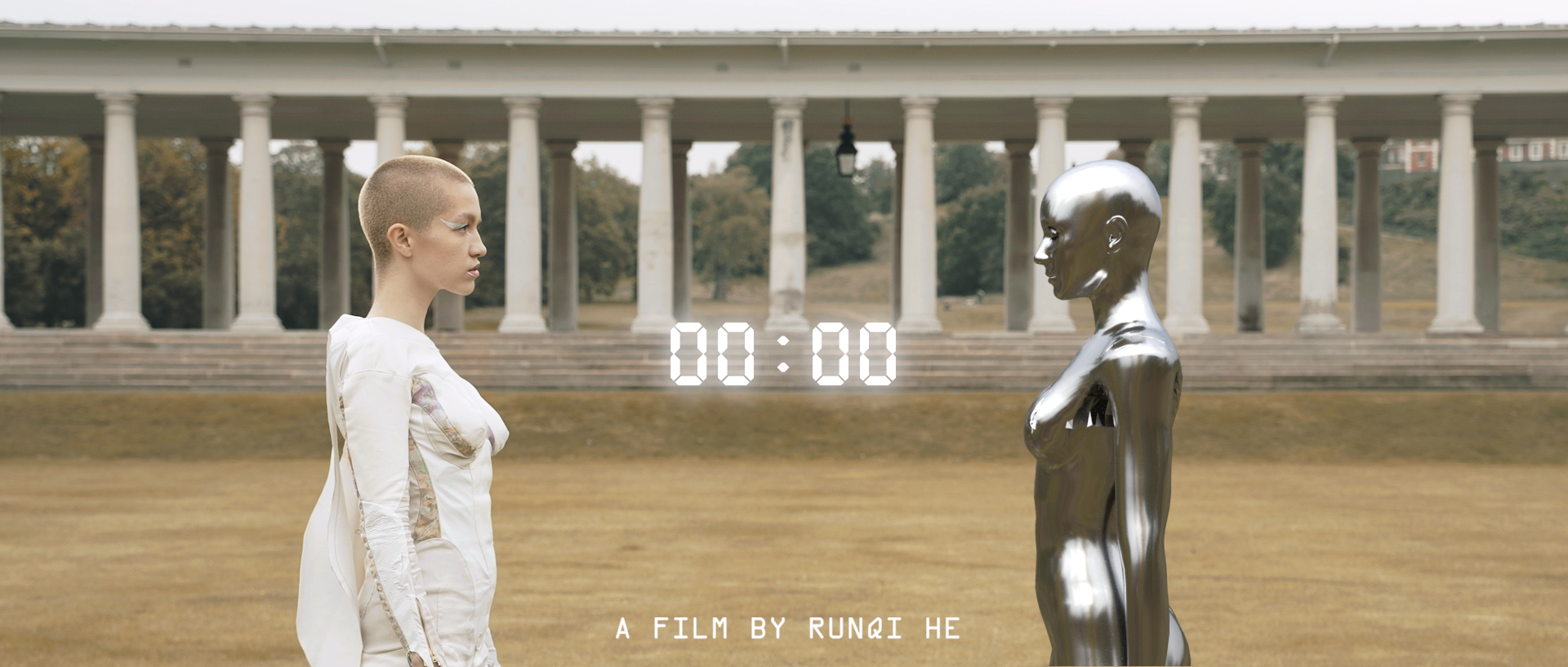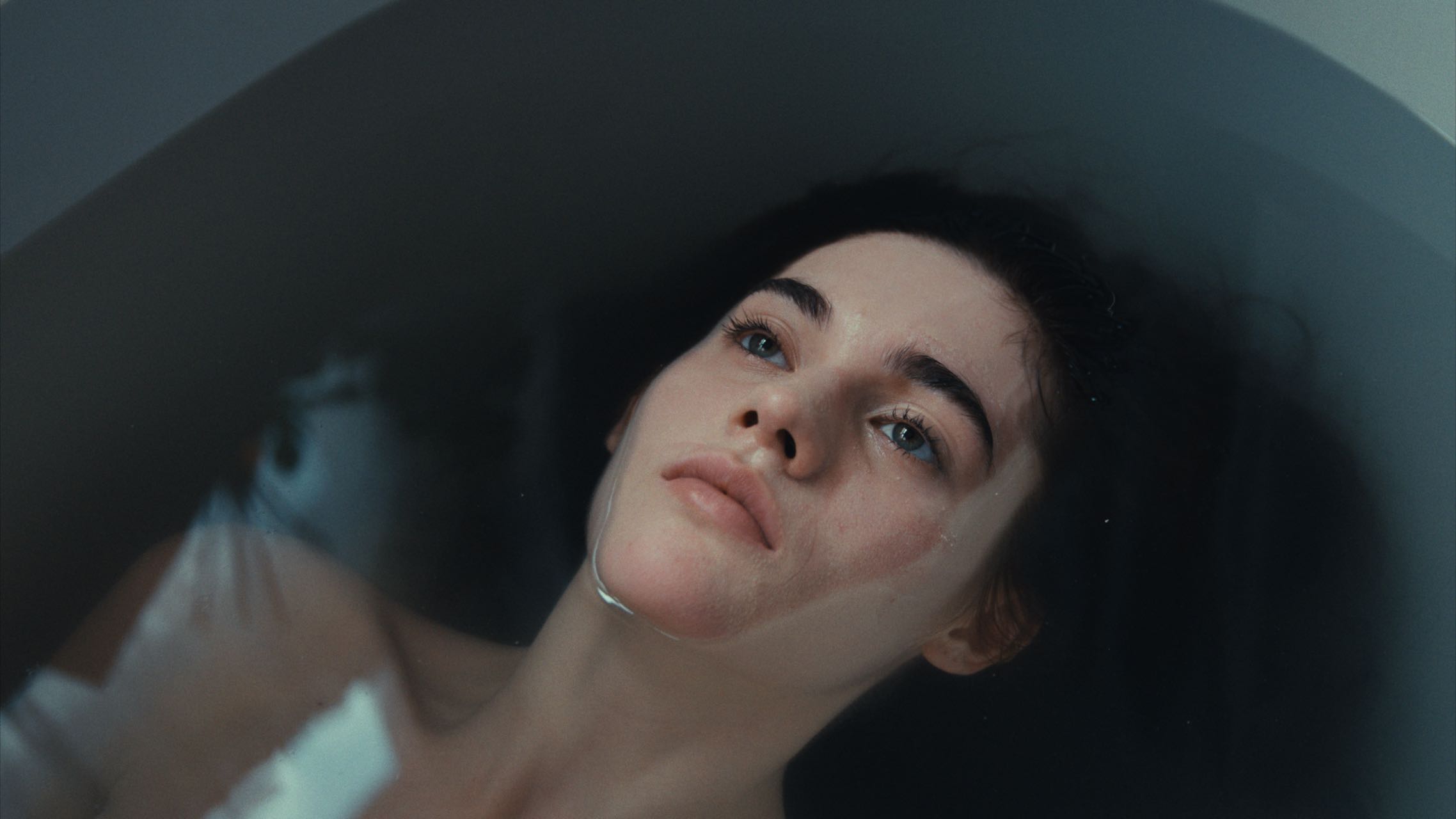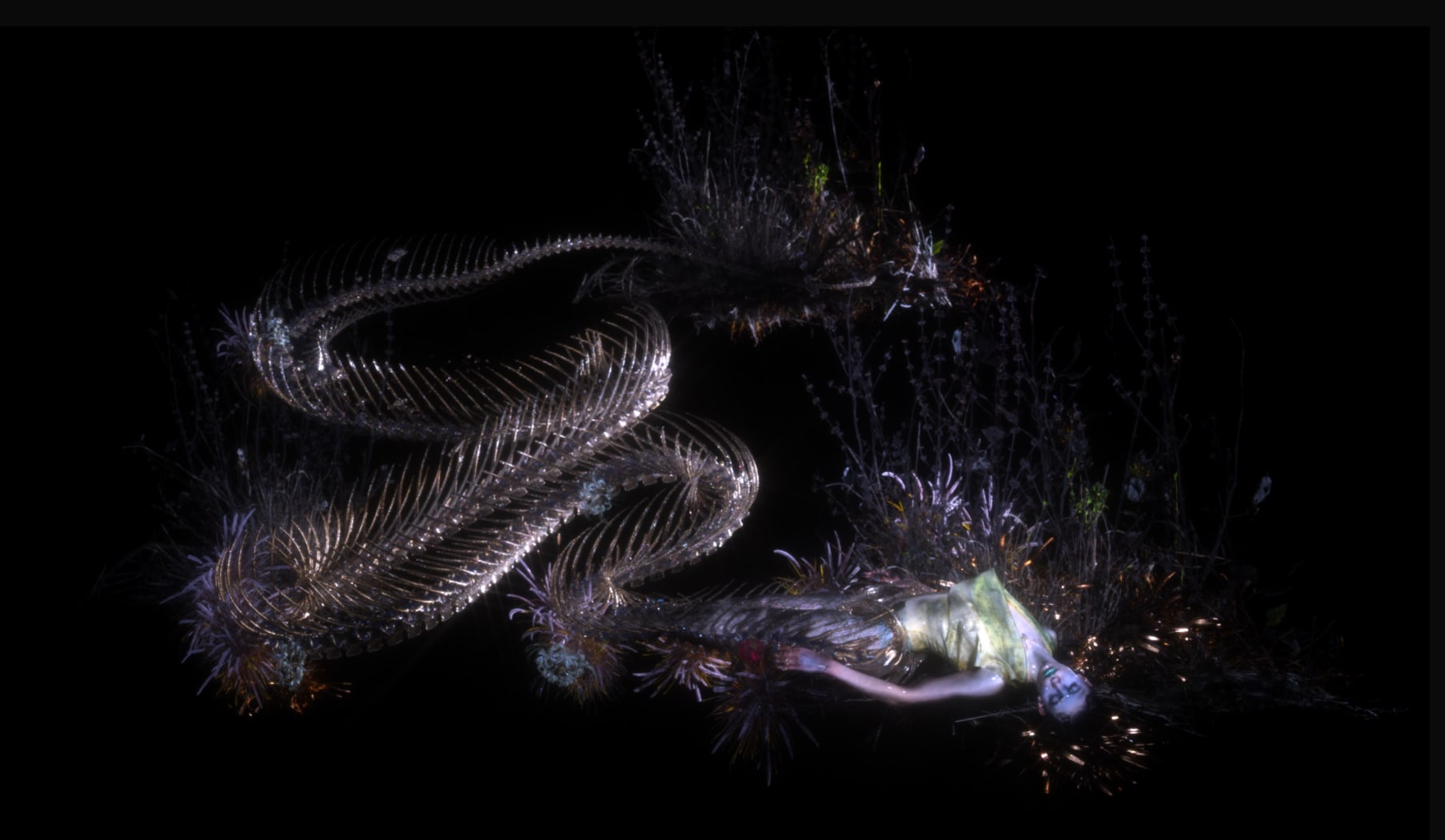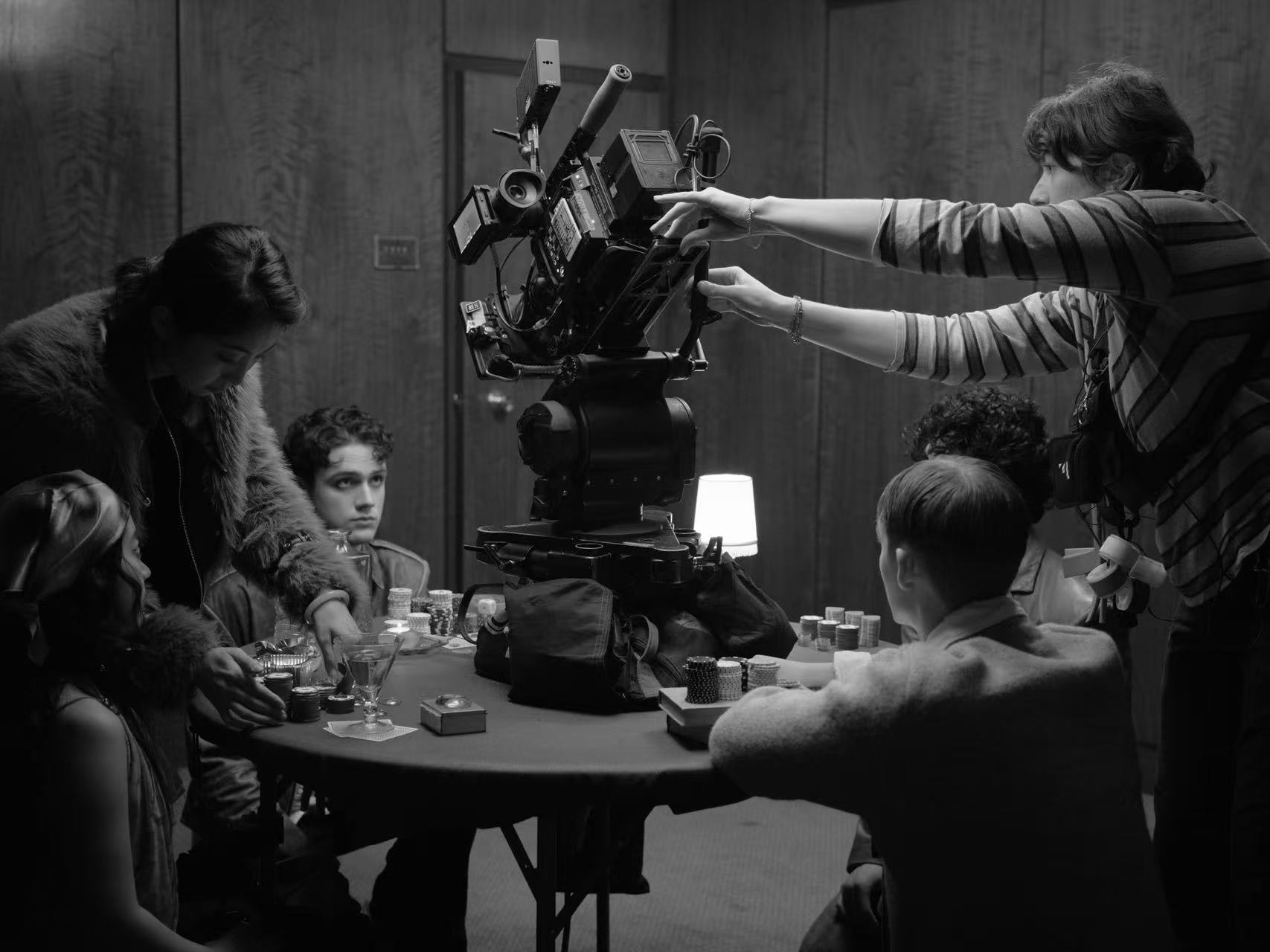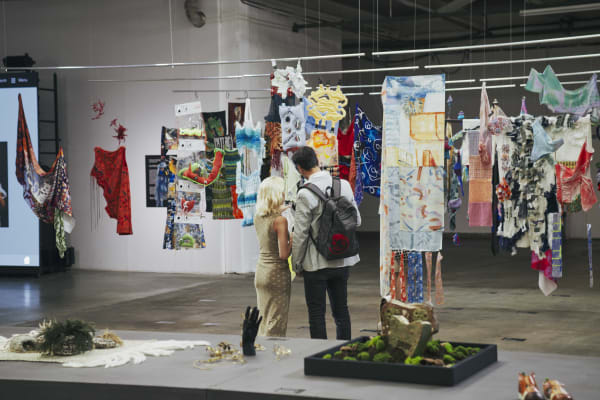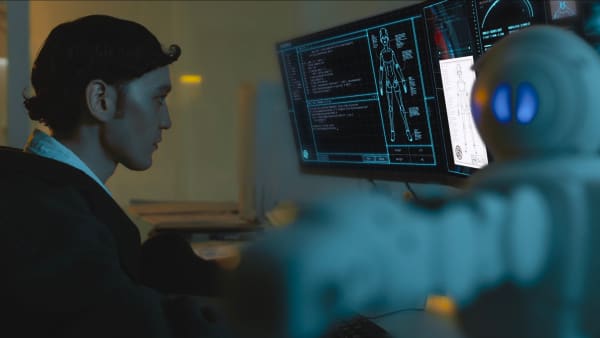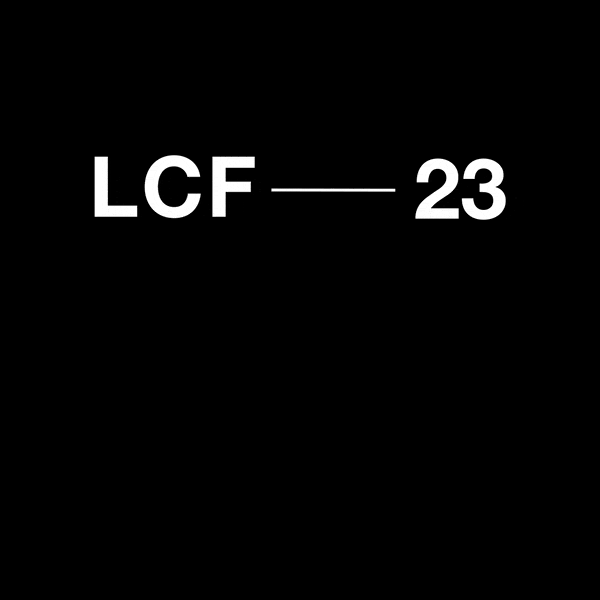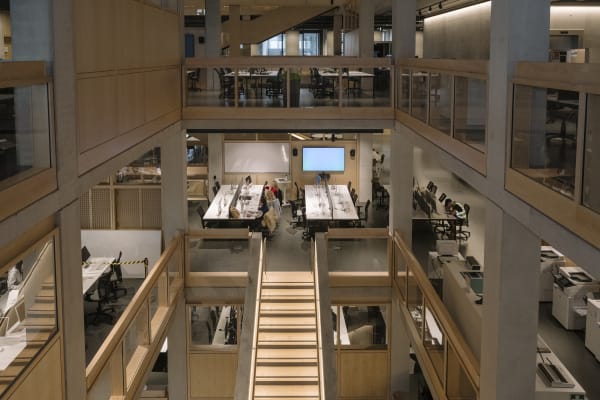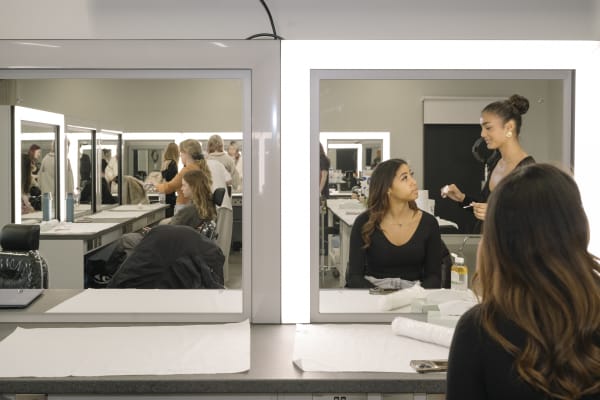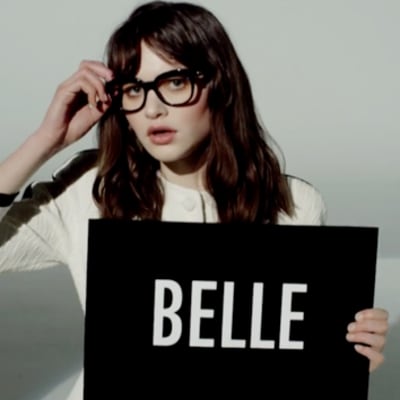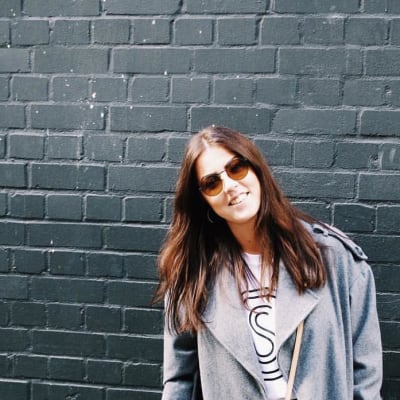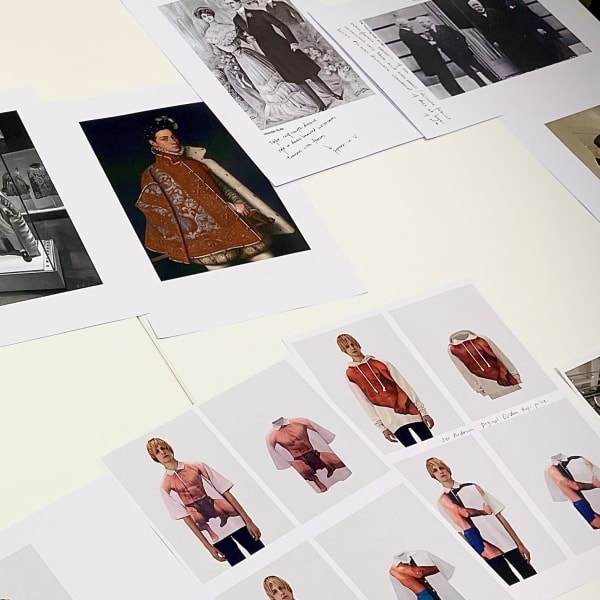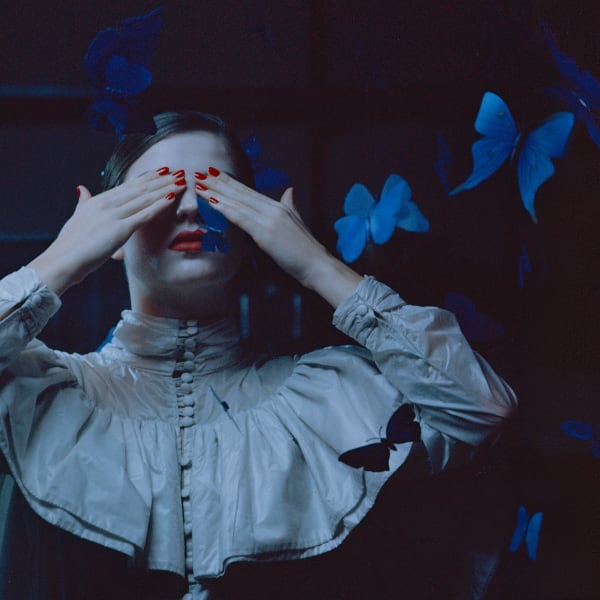Course units
Block 1: EXPLORE - supports the transition to postgraduate level study through the following units:
- Fashion and Film (40 Credits)
This unit will introduce you to fashion and film as cultural practices, and explores how they come together to foster a new form of fashion image making and communication. Offering you a solid grounding in fashion and film theory, the unit will focus on research methods and methodologies, contemporary fashion communication and consumption, and how film is produced and distributed in a digital landscape.
- Fashion Film Production (20 Credits)
This unit focusses on the contemporary fashion film and specifically how the moving image is being used within the fashion industry as a communication tool. It will introduce you to the film production process and essential ideation, management and organisational skills that are associated with film production for a fashion context.
On successful completion of these units you are eligible for the award of a Post Graduate Certificate (60 credits).
Block 2: SITUATE - expresses the shift from orientation and exploration of the discipline within LCF and UAL to a position of affirming your own interests and specific direction.
- Narrative Content for Digital Platforms (40 Credits)
This unit is designed to mirror industry practice through the ideation and film production process in response to a live industry brief. You will be challenged to produce a 360-brand campaign situated in a commercial context that aims to interrogate fashion narratives and innovate with contemporary digital technologies. Specifically, the unit will be underpinned by UAL’s Social Purpose with an aim to effect change for an intended audience.
- Elective Unit (20 Credits)
Students will have the opportunity to participate in an elective unit as part of this course. This is an opportunity for students to collaborate with students from other courses within the college.
The following is an example list of electives that have been previously delivered:
- Creative Decision Making for Fashion Enterprise
- Cultural Programming
- Fashion Politics and Cultures
- Fashion Practices for Social Change
- Fashion Together: Collaboration for Innovation
Please note:
- Elective unit titles and details of the unit may change year to year
- Elective units offered may change year to year, that is, unit listed above may or may not be offered in subsequent years
- Students participate in a bidding process for choosing electives and participation in any particular elective is not guaranteed
On successful completion of these units you are eligible for the award of a Post Graduate Diploma (120 credits)
Block 3: INTEGRATE - The culmination of theory and practice acquired throughout Block 1 and 2 which is expressed through the Master’s Project, working towards innovation and future practice beyond the course.
- Masters Project (60 Credits)
The Master’s Project should be an independent and original piece of work which seeks to present a new approach towards or perspective on a specific topic, realised through Fashion Film and underscored by deep research and critical reflection. The Master’s Project is the culmination of this MA degree.
On successful completion of the Master’s Project unit you are eligible for the award of a Master’s of Art (180 credits). The final award grading is based upon the results of the Master’s Project only.
Credit Framework
The University of the Arts London Credit Framework equates 20 credits to 200 hours of learning time.
